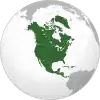ܐܣܝܐ
Assyrian Neo-Aramaic
| Root |
|---|
| ܐ ܣ ܐ (ʾ s ʾ) |
| 3 terms |
Etymology 1
From Aramaic אָסְיָא (ʾāsyā), from Akkadian 𒀀𒍪 (A.ZU /asû/, “physician, healer”), from Sumerian 𒀀𒍪 (A.ZU /azu/, “physician, healer”); also borrowed into Arabic آسٍ (ʔāsin).
Pronunciation
- (standard) IPA(key): [ˈɑsːjɑː]
Noun
ܐܵܣܝܵܐ • (āsyā) m sg (plural ܐܵܣܝܹ̈ܐ (āsyē), feminine ܐܵܣܝܼܬܵܐ (āsītā))
- medical doctor, physician, healer: One who is trained and licensed to heal the sick or injured.
- ܐܸܢ ܒܸܚܫܵܒ݂ܵܐ ܝܘܸܬ ܕܗܵܠܵܐ ܠܵܐ ܝܘܸܬ ܨܦܵܝܝܼ ܩܘܼܕܡܹܐ، ܐܵܙܹܠ݇ܬ ܠܚܵܙܹܝܬ ܠܹܗ ܐܵܣܝܵܐ.
- If you think you are still unwell tomorrow, go see the doctor.
- Luke 5:31:
- ܓ̰ܘܼܘܸܒ ܠܹܗ ܝܼܫܘܿܥ ܘܐ݇ܡܝܼܪܹܗ ܐܸܠܵܝܗܝ، «ܐܵܢܝܼ ܕܝܼܢܵܐ ܒܚܘܼܠܡܵܢܵܐ ܠܹܐ ܝܢܵܐ ܣܢܝܼܩܹܐ ܠܐܵܣܝܵܐ، ܐܸܠܵܐ ܐܵܢܝܼ ܕܚܸܪܒܵܐ ܡܪܝܼܥܹܐ ܝܢܵܐ».
- juwib lēh īšoʿ w-mīrēh illāyh, “ānī d-īnā b-ḥulmānā lē ìnā snīqē lāsyā, illā ānī d-ḥirbā mrīʿē ìnā”.
- Jesus answered them, “It's not the healthy who need a doctor, but the sick.”
Inflection
Inflection of ܐܵܣܝܵܐ (āsyā)
| number | isolated forms | with possessive pronouns | |||||
|---|---|---|---|---|---|---|---|
| state | form | person | singular | plural | |||
| m | f | ||||||
| singular | absolute | – | 1st person | ܐܵܣܝܝܼ (āsyī) |
ܐܵܣܝܲܢ (āsyan) | ||
| construct | ܐܵܣܝ (ās) |
2nd person | ܐܵܣܝܘܼܟ݂ (āsyuḵ) |
ܐܵܣܝܵܟ݂ܝ (āsyāḵ) |
ܐܵܣܝܵܘܟ݂ܘܿܢ (āsyāwḵon) | ||
| emphatic | ܐܵܣܝܵܐ (āsyā) |
3rd person | ܐܵܣܝܹܗ (āsyēh) |
ܐܵܣܝܘܿܗ̇ (āsyoh) |
ܐܵܣܝܗܘܿܢ (āsihon) | ||
| plural | absolute | – | 1st person | ܐܵܣܝܝܼ̈ (āsyī) |
ܐܵܣܝܲܢ̈ (āsyan) | ||
| construct | ܐܵܣܝܲܝ̈ (āsyay) |
2nd person | ܐܵܣܝܘܼ̈ܟ݂ (āsyuḵ) |
ܐܵܣܝܵܟ݂ܝ̈ (āsyāḵ) |
ܐܵܣܝܵܘ̈ܟ݂ܘܿܢ (āsyāwḵon) | ||
| emphatic | ܐܵܣܝܹ̈ܐ (āsyē) |
3rd person | ܐܵܣܝܘܼ̈ܗܝ (āsyuh) |
ܐܵܣܝ̈ܘܿܗ̇ (āsyoh) |
ܐܵܣܝܗ̈ܘܿܢ (āsihon) | ||
Etymology 2
From Ancient Greek Ἀσία (Asía).
Pronunciation
- (standard) IPA(key): [ɑsˈːiːjɑ]
Proper noun
ܐܵܣܝܼܵܐ • (āsīyā) f
- Asia (continent located east of Europe, west of the Pacific Ocean, north of Oceania and south of the Arctic Ocean)
- ܐܝܼܬ ܐܲܪܒܥܝܼ ܬܡܵܢܝܵܐ ܐܲܬܪ̈ܵܘܵܬܹܐ ܓܵܘ ܐܵܣܝܼܵܐ ܐܸܕܝܵܘܡ.
- īt arbʿī tmānyā atrāwātē gāw āsīyā idyāwm.
- There are forty-eight countries in Asia today.
- (historical) Anatolia, Asia Minor (province of the Roman Empire located in what is now western Turkey)
- Acts 19:10:
- ܐܵܗܵܐ ܓܪܝܼܫ ܠܵܗ̇ ܬܲܪܬܹܝܢ ܫܸܢܹ̈ܐ، ܘܗܵܕܟ݂ܵܐ ܟܠܵܝܗܝ ܝܗܘܼܕܵܝܹ̈ܐ ܘܝܵܘܢܵܝܹ̈ܐ ܕܒܸܥܡܵܪܵܐ ܝܗ݇ܘܵܘ ܓܵܘ ܐܘܼܚܕܵܢܵܐ ܕܐܵܣܝܼܵܐ ܫܡܝܼܥ ܠܗܘܿܢ ܗܹܡܸܙܡܵܢ ܕܡܵܪܝܵܐ.
- āhā grīš lāh tartēn šinnē, w-hādḵā kulāyh hudāyē w-yāwnāyē d-biʿmārā ìwā gāw uḥdānā d-āsīyā šmīʿ lhon hēmizmān d-māryā.
- And this continued for two years, so that all who dwelt in Asia heard the word of the Lord, both Jews and Greks
- Acts 19:10:
- (Greek God) A daughter of Oceanus and Tethys, the wife of the Titan, Iapetus, and mother of Atlas, Prometheus, Epimetheus and Menoetius.
- (astronomy) 67 Asia, a main belt asteroid.
See also
| Seven Continents in Assyrian Neo-Aramaic · ܫܲܒ݂ܥܵܐ ܝܲܒܝܼܫܝܵܬܹ̈ܐ (šaḇʿā yabišyātē) (layout · text) | |||||||
|---|---|---|---|---|---|---|---|
| Icons |  |
.svg.png.webp) |
 |
.svg.png.webp) |
.svg.png.webp) |
.svg.png.webp) |
.svg.png.webp) |
| Assyrian Neo-Aramaic |
ܓܲܪܒܵܝ ܐܵܡܵܝܪܟܵܐ (garbāy āmāyrkā) | ܬܲܝܡܵܢ ܐܵܡܵܝܪܟܵܐ (taymān āmāyrkā) | ܐܲܢܛܵܪܬܝܼܩܵܐ (anṭārtīqā) | ܐܲܦܪܝܼܩܵܐ (aprīqā) | ܐܹܘܪܘܿܦܵܐ (ēwropā) | ܐܲܣܝܼܵܐ (asīyā) | ܐܘܼܩܝܵܢܘܿܣܝܼܵܐ (uqyānosīyā) |
| English | North America | South America | Antarctica | Africa | Europe | Asia | Oceania |
Classical Syriac
Etymology 1
From Akkadian 𒀀𒍪 (A.ZU /asû/, “physician, healer”), from Sumerian 𒀀𒍪 (A.ZU /azu/, “physician, healer”).
Pronunciation
- (Classical Edessan) IPA(key): [ˈʔɑs.jɑ]
- (Eastern Syriac) IPA(key): [ˈʔɑs.jɑ]
- (Western Syriac) IPA(key): [ˈʔos.jo]
Noun
ܐܣܝܐ • (ʾāsyā) m (plural ܐܣܘܬܐ (ʾāswāṯā), singular feminine counterpart ܐܣܝܬܐ (ʾāsīṯā))
Inflection
declension of ܐܣܝܐ
| state | singular | plural |
|---|---|---|
| absolute | ܐܣܐ | ܐܣܘܢ |
| construct | ܐܣܐ | ܐܣܘܬ |
| emphatic | ܐܣܝܐ | ܐܣܘܬܐ |
| possessive forms | ||
| 1st c. sg. (my) | ܐܣܝܝ | ܐܣܘܬܝ |
| 2nd m. sg. (your) | ܐܣܝܟ | ܐܣܘܬܟ |
| 2nd f. sg. (your) | ܐܣܝܟܝ | ܐܣܘܬܟܝ |
| 3rd m. sg. (his) | ܐܣܝܗ | ܐܣܘܬܗ |
| 3rd f. sg. (her) | ܐܣܝܗ | ܐܣܘܬܗ |
| 1st c. pl. (our) | ܐܣܝܢ | ܐܣܘܬܢ |
| 2nd m. pl. (your) | ܐܣܝܟܘܢ | ܐܣܘܬܟܘܢ |
| 2nd f. pl. (your) | ܐܣܝܟܝܢ | ܐܣܘܬܟܝܢ |
| 3rd m. pl. (their) | ܐܣܝܗܘܢ | ܐܣܘܬܗܘܢ |
| 3rd f. pl. (their) | ܐܣܝܗܝܢ | ܐܣܘܬܗܝܢ |
Derived terms
- ܐܣܝ (ʾassī, “to heal”)
Etymology 2
From Ancient Greek Ἀσία (Asía).
Pronunciation
- (Classical Edessan) IPA(key): [ʔɑˈsi.jɑ]
- (Eastern Syriac) IPA(key): [ʔɑˈsi.jɑ]
- (Western Syriac) IPA(key): [ʔɑˈsi.jɑ]
References
- “ˀsy”, in The Comprehensive Aramaic Lexicon Project, Cincinnati: Hebrew Union College, 1986–, retrieved 2011-06-25
- Costaz, Louis (2002) Dictionnaire syriaque-français ∙ Syriac–English Dictionary ∙ قاموس سرياني-عربي, 3rd edition, Beirut: Dar El-Machreq, page 14a
- Payne Smith, Jessie (1903) A Compendious Syriac Dictionary Founded Upon the Thesaurus Syriacus of R. Payne Smith, D.D., Oxford: Clarendon Press, page 22b
- Sokoloff, Michael (2009) A Syriac Lexicon: A Translation from the Latin, Correction, Expansion, and Update of C. Brockelmann's Lexicon Syriacum, Winona Lake, Indiana; Piscataway, New Jersey: Eisenbrauns; Gorgias Press, page 75a-b
This article is issued from Wiktionary. The text is licensed under Creative Commons - Attribution - Sharealike. Additional terms may apply for the media files.